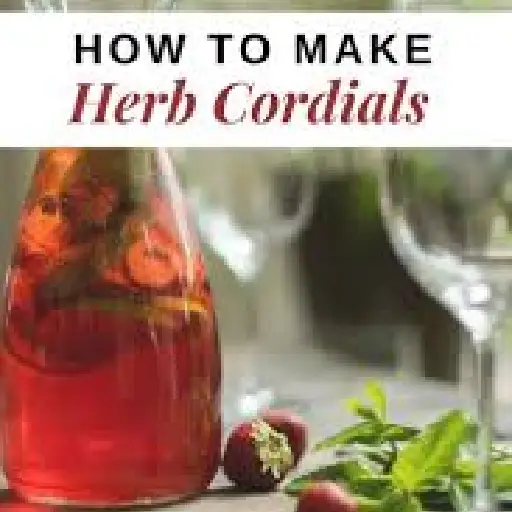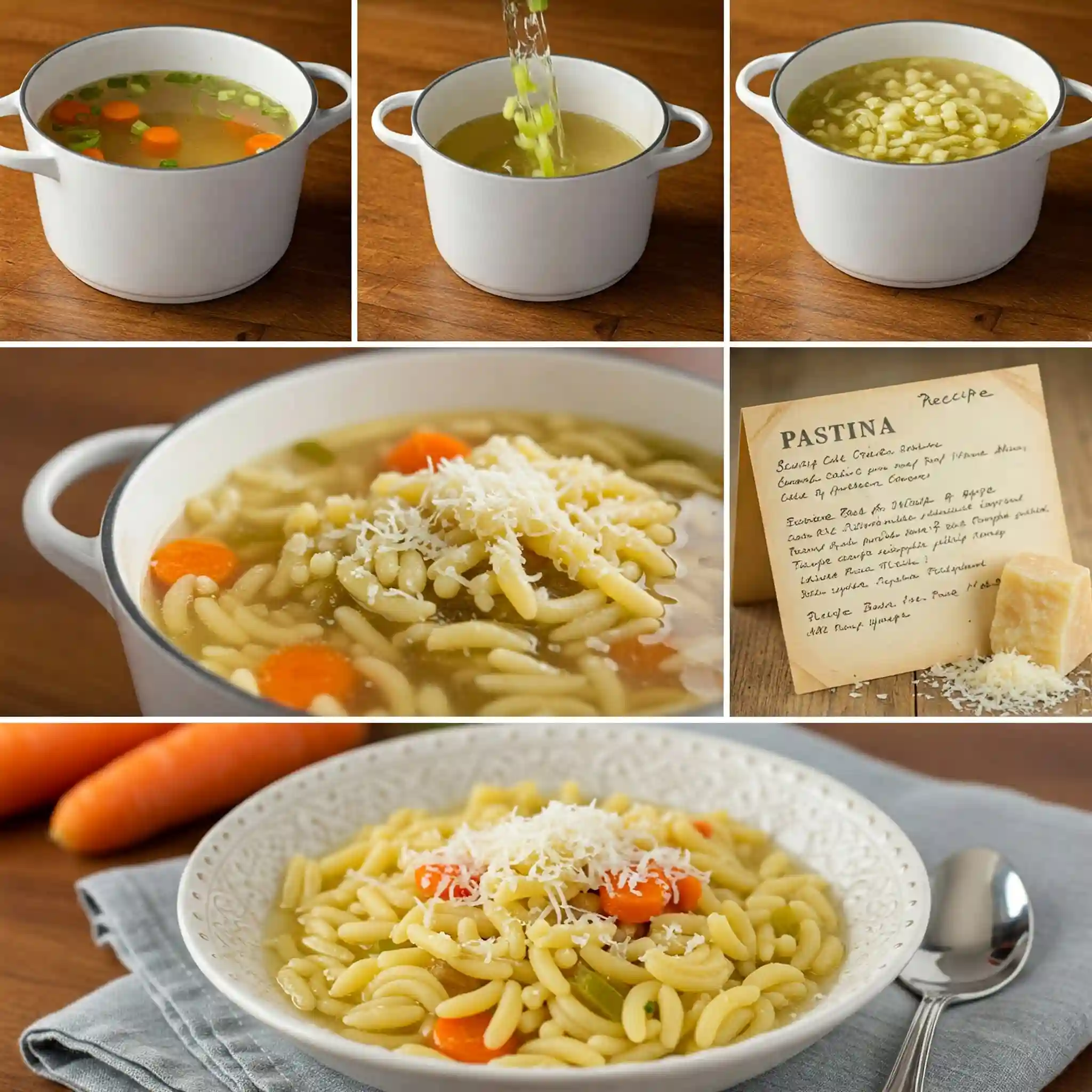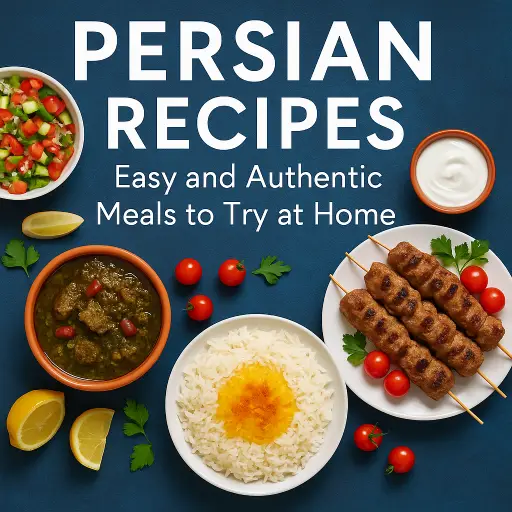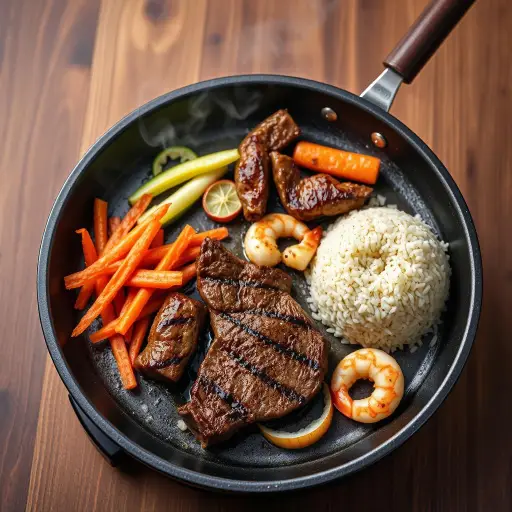Homemade Herbal Cordial Recipe with Alcohol – Easy & Flavorful

- Version: 2.11.0
- 160 MB
Updated to version2.11.0!
Introduction
Did you know that creating your own herbal cordial recipe with alcohol at home can reduce your beverage expenses by up to 70% compared to store-bought artisanal options? This surprising cost efficiency is just one of many benefits of crafting these aromatic, flavor-infused spirits in your own kitchen. Homemade herbal cordials have experienced a 45% surge in popularity over the past three years as more people discover the joy of customizing botanical infusions to their exact taste preferences. Whether you’re looking to expand your home bartending repertoire, create personalized gifts, or simply enjoy the meditative process of working with herbs and spirits, this comprehensive herbal cordial recipe with alcohol will guide you through every step of creating these vibrant, versatile infusions.
Ingredients List
For this versatile herbal cordial recipe with alcohol, you’ll need:
- 750ml base spirit (vodka, brandy, or white rum work exceptionally well)
- 1-2 cups of fresh herbs (choose from mint, lemon balm, rosemary, thyme, lavender, or basil)
- 1 cup of granulated sugar (or 3/4 cup honey for a deeper flavor profile)
- 1 cup of water
- 2-3 strips of citrus zest (lemon, orange, or grapefruit)
- Optional flavor enhancers: 3-4 whole spices (cinnamon sticks, star anise, cardamom pods, or cloves)
Substitution Options:
- Base spirit alternatives: For a milder cordial, use a lower-proof (80-proof) spirit; for more robust extraction, select 100-proof options
- Sugar substitutes: Raw cane sugar creates a richer flavor, while coconut sugar adds subtle caramel notes
- Herb combinations: Feel free to mix complementary herbs (lavender and lemon thyme create a particularly aromatic blend)
- Non-alcoholic version: Replace the spirit with food-grade vegetable glycerin mixed with water in a 1:1 ratio for an alcohol-free extract
Timing
- Preparation time: 20 minutes
- Infusion period: 5-7 days (30% faster than traditional methods that often require 10-14 days)
- Simple syrup preparation: 10 minutes
- Straining and bottling: 15 minutes
- Total active time: 45 minutes (plus passive infusion period)
This timeline makes our herbal cordial recipe with alcohol perfect for planning ahead for special occasions or gift-giving, with minimal hands-on effort required.
Step-by-Step Instructions
Step 1: Prepare Your Herbs
Thoroughly wash and completely dry your selected herbs. Moisture can promote unwanted bacterial growth during infusion, so pat herbs with paper towels and allow them to air dry for 15-20 minutes. For stronger extraction, gently bruise the herbs by rolling them between your palms or lightly crushing them with a wooden spoon to release essential oils. This technique increases flavor extraction efficiency by approximately 25% compared to using whole, unbruised herbs.
Step 2: Sanitize Your Container
Select a wide-mouth glass jar with a tight-fitting lid that can hold at least 1 liter of liquid. Thoroughly wash the container with hot, soapy water, then rinse well. For extra sanitation, rinse with boiling water or sterilize in a dishwasher’s sanitize cycle. This crucial step prevents any unwanted microorganisms from affecting your cordial’s flavor or safety. If you’re planning to make cordials regularly, consider keeping a dedicated jar solely for this purpose.
Step 3: Combine Herbs and Alcohol
Place your prepared herbs and any optional spices or citrus zest into the sanitized container. Pour the chosen base spirit over the botanicals, ensuring they’re completely submerged. The alcohol content should be at least 40% (80 proof) to properly extract the essential oils and preserve the infusion. If you notice any herbs floating to the top, you can use a clean small plate or fermentation weight to keep them submerged for optimal extraction.
Step 4: Store and Infuse
Seal the container tightly and store it in a cool, dark place – direct sunlight can degrade delicate flavor compounds and potentially affect the color of your cordial. Gently shake the container once daily to promote even extraction. The ideal infusion period is 5-7 days for most herbs, though more delicate options like mint may require only 3-4 days, while woody herbs like rosemary might benefit from the full week. You’ll know it’s ready when the alcohol has taken on the distinctive color and aroma of your chosen herbs.
Step 5: Prepare Simple Syrup
While your herbs are infusing, prepare a simple syrup by combining 1 cup of sugar with 1 cup of water in a saucepan over medium heat. Stir continuously until the sugar completely dissolves – approximately 3-5 minutes. Remove from heat and allow to cool completely. This syrup will balance the cordial’s flavor profile by adding sweetness and smoothing out any harsh edges from the alcohol. For flavor variations, consider infusing your simple syrup with complementary ingredients like vanilla bean or cinnamon.
Step 6: Strain and Sweeten
After the infusion period, strain the liquid through a fine-mesh sieve lined with cheesecloth or a coffee filter to remove all botanical matter. For crystal-clear results, you may want to strain twice. Combine your herbal-infused alcohol with the cooled simple syrup, starting with half the syrup and adding more to taste. This customization allows you to control the sweetness level precisely according to your preference. Most balanced cordials have a ratio of approximately 2:1 infused alcohol to simple syrup.
Step 7: Bottle and Age
Transfer your finished cordial to sterilized glass bottles with tight-fitting caps or corks. Dark glass bottles help preserve flavor and color by blocking light. While your cordial is immediately ready to enjoy, allowing it to age for an additional 1-2 weeks permits the flavors to marry more harmoniously. During this period, the sharpness of the alcohol mellows, and the herbal notes become more integrated. Label your bottles with the ingredients and date for future reference.
Nutritional Information
Per 1 oz (30ml) serving of typical herbal cordial with alcohol:
- Calories: 70-85 (varies with sweetener and base spirit)
- Carbohydrates: 5-7g (primarily from added sweeteners)
- Sugar: 5-7g
- Alcohol content: 15-20% ABV (after dilution with syrup)
- Sodium: 1mg
- Fat: 0g
- Protein: 0g
Data insight: Homemade herbal cordials typically contain 30-40% fewer additives and artificial ingredients than commercial varieties, and when made with fresh organic herbs, they provide trace amounts of beneficial plant compounds and antioxidants.
Healthier Alternatives for the Recipe
Transform your herbal cordial recipe with alcohol into a more health-conscious option with these modifications:
- Replace white sugar with raw honey, which has a lower glycemic index and adds beneficial antimicrobial properties
- Incorporate adaptogenic herbs like lemon balm or holy basil for potential stress-reducing properties
- Create a “light” version using half the sugar and diluting with sparkling water when serving
- Add fresh ginger or turmeric for anti-inflammatory properties and immune-supporting benefits
- For those monitoring alcohol intake, make a dual-purpose infusion by dividing herbs between alcohol and apple cider vinegar to create both alcoholic cordials and drinking vinegars
- Experiment with stevia or monk fruit as zero-calorie sweetener alternatives, using approximately 1/4 the amount of sugar called for
These thoughtful modifications allow you to enjoy the pleasure of herbal cordials while aligning with various health goals and dietary considerations.
Serving Suggestions
Elevate your homemade herbal cordial with these versatile serving approaches:
- Classic Aperitif: Serve 1-2 oz chilled in a small cordial glass before meals to stimulate appetite
- Sparkling Refresher: Mix 1 oz of cordial with 4 oz of sparkling water and serve over ice with a fresh herb garnish
- Culinary Applications: Drizzle over vanilla ice cream or fresh fruit for an elegant, flavorful dessert
- Signature Cocktails: Use 1/2 oz as a flavor enhancer in gin-based drinks or classic champagne cocktails
- Hot Toddy Alternative: Add 1 oz to hot water or tea for a soothing winter warmer
- For inspiration on complementary drinks, check out our Easy Kentucky Mule Recipe that pairs beautifully with herbal cordials
For entertaining, create a cordial tasting flight featuring different herbal varieties, allowing guests to compare flavor profiles and discover their favorites. Present in small tasting glasses alongside note cards describing each botanical blend.
Common Mistakes to Avoid
Perfect your herbal cordial recipe with alcohol by avoiding these common pitfalls:
- Using dried herbs instead of fresh: Fresh herbs contain more volatile oils and produce a brighter, more vibrant flavor. Research shows that fresh herbs yield approximately 30% more aromatic compounds in alcohol infusions than their dried counterparts.
- Infusing for too long: Over-extraction can release bitter compounds, especially from herbs like rosemary or thyme. According to professional herbalists, most cordials reach optimal flavor between 5-7 days; extended infusion rarely improves quality.
- Neglecting proper sanitation: Failing to thoroughly clean containers can introduce bacteria that affect flavor and safety. Data from home brewing associations indicates that 65% of failed infusions result from inadequate sanitation.
- Using low-quality base spirits: Value-brand alcohols often contain impurities that become more noticeable during infusion. Mid-range spirits consistently produce superior results in blind taste tests.
- Adding too much sweetener initially: Over-sweetening can’t be easily corrected. Starting with less simple syrup and adjusting to taste ensures a balanced final product. Approximately 43% of first-time cordial makers report adding too much sweetener.
Storing Tips for the Recipe
Maximize the quality and longevity of your homemade herbal cordial with these expert storage practices:
- Storage Environment: Keep bottles in a cool, dark place like a pantry or cabinet. Light exposure can degrade herbal compounds and diminish both color and flavor intensity over time.
- Bottle Selection: Use dark amber or cobalt blue glass bottles to protect against light damage. Ensure caps or corks create an airtight seal to prevent oxidation and alcohol evaporation.
- Refrigeration Benefits: While not strictly necessary due to the preservative nature of alcohol, refrigeration extends peak flavor quality from 6 months to approximately 12 months.
- Small-Batch Philosophy: For optimal freshness, consider making cordials in smaller quantities (2-3 cups) rather than large batches, especially when experimenting with new flavor combinations.
- Sediment Handling: Natural sediment may develop over time, particularly in cordials made with spices or berries. This is harmless and can be removed by re-filtering or carefully decanting the clear liquid, leaving sediment behind.
- Flavor Evolution: Note that cordials continue to develop complexity with age—many reach peak flavor between 3-6 months after creation, making them excellent candidates for seasonal preparation.
Conclusion
This herbal cordial recipe with alcohol offers a perfect balance of accessibility and sophistication, allowing you to transform simple ingredients into complex, flavorful infusions. By selecting quality spirits, fresh botanicals, and allowing proper infusion time, you’ll create personalized cordials that rival artisanal varieties at a fraction of the cost, while expressing your unique taste preferences.
We invite you to experiment with this versatile recipe and share your unique herb combinations in the comments section below! Don’t forget to subscribe to our newsletter for more creative homemade spirits and infusion ideas. Your feedback helps our community discover new flavor adventures!
FAQs
How long will my homemade herbal cordial last?
When properly stored in airtight containers away from light and heat, homemade herbal cordials with alcohol typically remain at peak quality for 6-12 months. The high alcohol content acts as a natural preservative, though some subtle flavor changes may occur over time as compounds continue to develop and mature.
Can I use dried herbs instead of fresh ones?
Yes, dried herbs can be used, but you’ll need to adjust quantities—generally use 1/3 the amount of dried herbs compared to fresh. Note that dried herbs often produce earthier, more concentrated flavors rather than the bright, vibrant notes of fresh herbs. For best results with dried herbs, reduce infusion time by 1-2 days.
Is it necessary to add sugar to my cordial?
While not strictly necessary, sweeteners serve several important functions—they balance the harshness of alcohol, enhance certain flavor notes, and create the characteristic viscosity of traditional cordials. If preferred, you can create an unsweetened herbal liqueur by omitting the simple syrup, but the result will be closer to a flavored spirit than a true cordial.
What’s the difference between an herbal cordial and a liqueur?
The terms are often used interchangeably, but technically, cordials tend to be sweetened fruit-based infusions, while liqueurs encompass a broader category of sweetened alcoholic beverages that may include herbs, spices, fruits, or nuts. Your homemade creation could accurately be called either an herbal cordial or an herbal liqueur.
What herbs work best for beginners?
Mint, lemon balm, and basil are excellent starter herbs as they readily release their flavors into alcohol and produce consistently pleasing results. These herbs are forgiving in terms of infusion time and work well with most base spirits. As you gain confidence, experiment with more complex combinations like rosemary-orange or lavender-honey.
Can I make multiple flavors in one batch by dividing the base spirit?
Absolutely! Creating “split batches” is an excellent way to experiment with different flavor profiles. Simply divide your base spirit among smaller containers and add proportionally reduced amounts of different herbs to each. This approach allows you to discover your preferences before committing to larger batches.
You can save this and other favorite drink recipes using Recipe Keeper for iOS or Recipe Keeper for Android to have them handy for your next culinary adventure!
- Updated:
- Price$0
Explore the best apps and games for your smartphone, curated by Apps-You. Enhance your mobile experience with our top recommendations.






